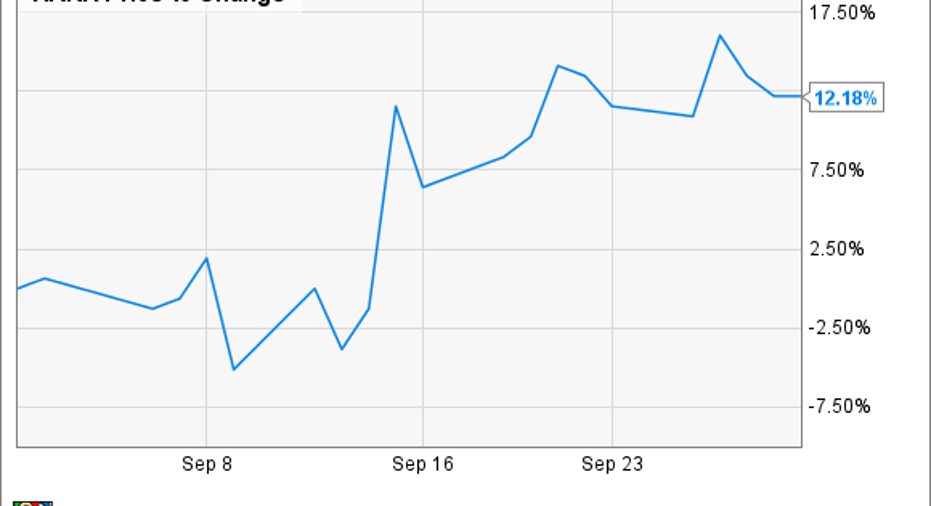Why Arena Pharmaceuticals Is Finally Showing Some Signs of Life

Image source: Getty Images.
What happened
Arena Pharmaceuticals (NASDAQ: ARNA), a company that specializes in the development of novel small-molecule drugs, saw its shares finally reverse course last month by gaining over 12%. Prior to this move, the drugmaker's stock had been steadily trending downward over the last three and a half years as a result of sluggish sales for its anti-obesity medication Belviq, which it co-promotes with the Japanese pharma Eisai.
The apparent catalyst behind Arena's trek higher in September was a positive note from the small investment bankFBR & Co., which assigned the struggling biotech a $6 price target and an outperform rating.
So what
FBR & Co.'s $6 price target is noteworthy for two reasons. First off, it implies that Arena's shares could more than triple over the next year from current levels. Secondly, this uber-bullish note stands in stark contrast to the company's underlying fundamentals and near-term growth prospects.
In short, Belviq's commercial launch hasbeen a complete disappointment with sales expected to fall well below $50 million in 2016, leading Eisai to scale back its promotional support for the drug earlier this year. The net result is that Arena is currently trading at right around 10 times its projected 2017 revenue, which arguably qualifies as a "stretched valuation" in this rather unforgiving and moody market.
Now what
As Belviq has clearly turned into a niche product with modest commercial prospects, Arena has been shifting its resources back to its clinical pipeline composed of three early to mid-stage product candidates:
Image source: Arena Pharmaceuticals.
Etrasimod is arguably Arena's most important clinical asset at the moment, given that ulcerative colitis is expected to represent roughly a $7 billion market opportunity by 2021, and the indication sports above-average long-term growth prospects.
Even so, this experimental drug's potential to actually drive shareholder value moving forward is murky at best right now. Ulcerative colitis, after all, has attracted the attention of multiple biotech heavyweights such as Biogen, Celgene,and Gilead Sciences, which could lead to a surfeit of major new drugs within the next few years. Moreover, etrasimod's ongoing mid-stage trial won't read out until the fourth quarter of 2017, meaning that Arena's most exciting drug candidate is perhaps three to four years away from even reaching the stage where a regulatory filing is a possibility.
The long and short of it is that Arena will continue to be a cash-flow-negative operation for at least a few more years. And that's why investors may want to take this sky-high price target fromFBR & Co. with a rather large grain of salt.
A secret billion-dollar stock opportunity The world's biggest tech company forgot to show you something, but a few Wall Street analysts and the Fool didn't miss a beat: There's a small company that's powering their brand-new gadgets and the coming revolution in technology. And we think its stock price has nearly unlimited room to run for early in-the-know investors! To be one of them, just click here.
George Budwell has no position in any stocks mentioned. The Motley Fool owns shares of and recommends Biogen, Celgene, and Gilead Sciences. The Motley Fool has the following options: short October 2016 $95 puts on Celgene and short October 2016 $85 calls on Gilead Sciences. Try any of our Foolish newsletter services free for 30 days. We Fools may not all hold the same opinions, but we all believe that considering a diverse range of insights makes us better investors. The Motley Fool has a disclosure policy.



















